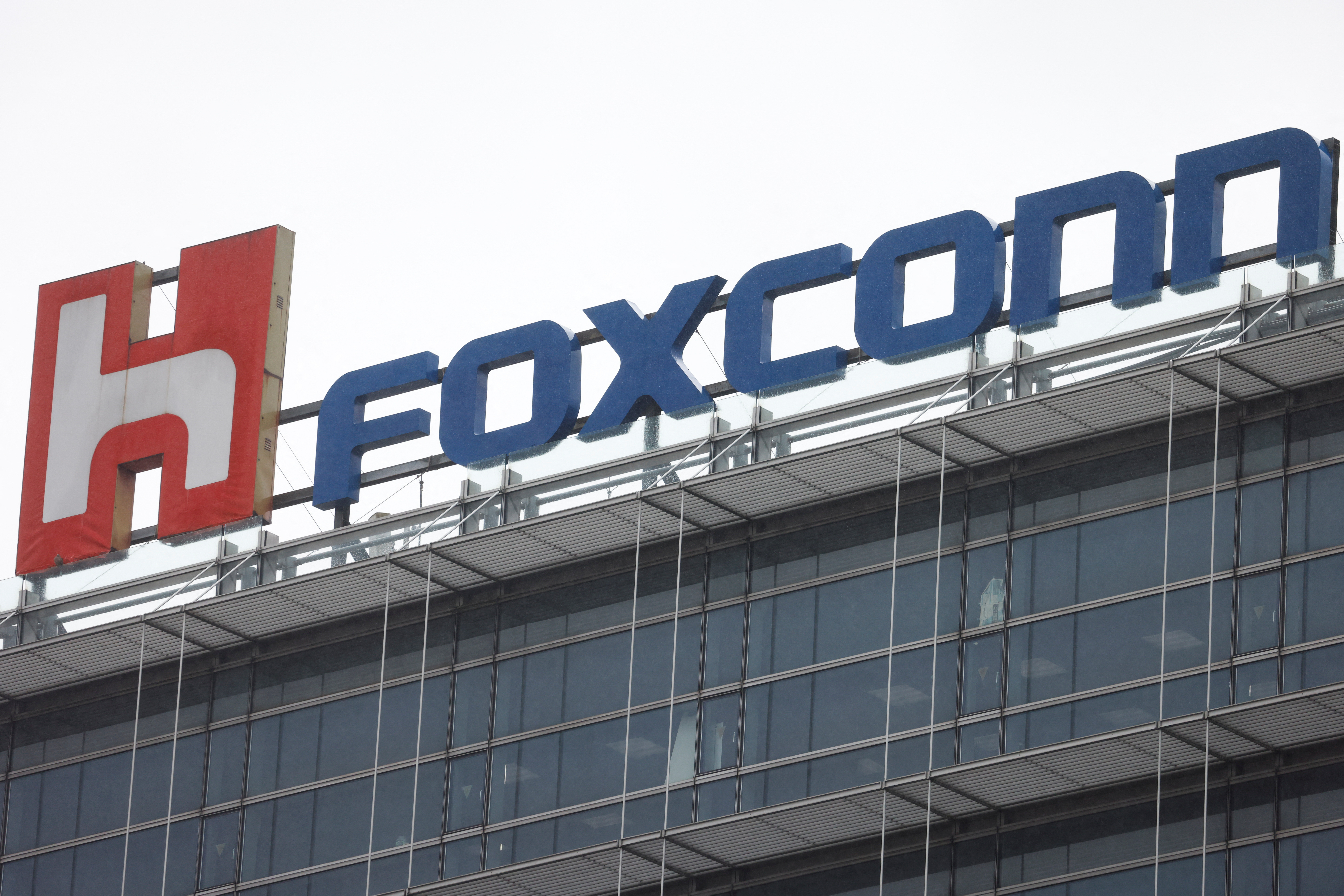
As Foxconn withdraws, Vedanta says other partners lined for chip plant
Following the withdrawal of Taiwanese electronic contract manufacturer Foxconn from their chip joint venture, Vedanta reaffirmed their complete commitment to their semiconductor project. The company emphasized that they are actively pursuing alternate partnerships to establish India’s first foundry.
Despite Foxconn’s departure, Vedanta remains steadfast in its determination to make significant progress in the semiconductor sector. They have already lined up other potential partners who can contribute to establishing the foundry. This move indicates Vedanta’s dedication to ensuring the success of the project and the development of a robust semiconductor ecosystem in India.

The decision by Vedanta to seek alternative partners underscores their strategic approach to mitigate the impact of Foxconn’s withdrawal. By actively engaging with other potential collaborators, Vedanta aims to tap into their expertise, resources, and technological capabilities to advance the semiconductor project effectively.
Establishing India’s first foundry is of immense importance as it can significantly bolster the country’s semiconductor manufacturing capabilities and reduce reliance on imports. With the growing demand for semiconductors across various industries, including electronics, telecommunications, and automotive, a domestic foundry can enhance India’s self-sufficiency and contribute to economic growth.
Vedanta’s determination to forge ahead with the semiconductor project demonstrates its confidence in India’s potential as a global player in the semiconductor industry. By securing new partnerships, Vedanta aims to leverage the strengths and synergies of various stakeholders to build a robust and competitive semiconductor ecosystem in the country.

Vedanta has announced that it is redoubling its efforts to fulfil Prime Minister Narendra Modi’s vision for the semiconductor industry. The company is committed to pivotally repositioning global semiconductor supply chains, highlighting India’s importance in this context.
Vedanta aims to contribute significantly to India’s semiconductor ecosystem by emphasising its commitment to the Prime Minister’s vision. The company recognizes the strategic value of developing a robust semiconductor industry and its role in strengthening global supply chains.
Repositioning global semiconductor supply chains involves reducing reliance on a few dominant players and diversifying manufacturing and sourcing options. Vedanta’s dedication to this endeavour signifies their intent to establish India as a critical player in the semiconductor sector, capable of meeting global demand and offering alternative supply chain options.
India’s participation in the global semiconductor supply chain can bring numerous benefits, including job creation, technological advancements, and reduced dependency on imports. Vedanta’s redoubled efforts underscore their determination to seize this opportunity and position India as a significant player in the semiconductor industry.
By aligning their efforts with the Prime Minister’s vision, Vedanta demonstrates their understanding of the semiconductor sector’s potential impact and strategic importance. Their commitment to India’s pivotal role in repositioning global semiconductor supply chains highlights their confidence in the country’s capabilities and the opportunities it offers for the growth and development of the industry.
Vedanta has restated its complete commitment to its semiconductor fab project and confirmed that they have secured other partners to establish India’s first foundry. The company emphasized its dedication to growing its Semiconductor team and highlighted that they possess a license for production-grade technology for 40 nm from a reputable Integrated Device Manufacturer (IDM).
With this reaffirmation, Vedanta aims to emphasize its unwavering commitment to the semiconductor fab project. By securing alternative partners, the company is actively working towards establishing the foundry, which will play a crucial role in enhancing India’s semiconductor manufacturing capabilities.
Vedanta’s focus on growing its Semiconductor team indicates its dedication to assembling a skilled workforce and nurturing talent in the semiconductor field. This effort aligns with the objective of building a robust domestic talent pool and fostering indigenous semiconductor expertise.
Furthermore, the acquisition of a license for production-grade technology for 40 nm from a prominent IDM demonstrates Vedanta’s access to advanced technology, which will be instrumental in the successful execution of the semiconductor fab project. This license signifies Vedanta’s readiness to leverage cutting-edge technology to drive semiconductor production in India.
Through this statement, Vedanta aims to convey its confidence in the semiconductor fab project and its determination to contribute to India’s semiconductor industry. By lining up partners, growing the Semiconductor team, and securing advanced technology, Vedanta underscores its commitment to establishing a robust and competitive semiconductor ecosystem in the country. Vedanta had previously announced its plans to develop a chip plant in Gujarat, with an investment of approximately Rs 1.5 lakh crore. However, their joint venture partner, Foxconn, has decided to withdraw from the project.
The decision by Foxconn to pull out of the chip plant project represents a significant change in the initial plans and partnership dynamics. While the specific reasons for Foxconn’s withdrawal have not been mentioned in the given information, such decisions can be influenced by a variety of factors, including changes in business strategies, market conditions, or internal considerations.
Despite Foxconn’s exit, Vedanta has reiterated its commitment to the semiconductor fab project and its determination to move forward with alternative partners. This reaffirmation reflects Vedanta’s persistence and drive to establish India’s first foundry, indicating they are actively seeking new collaborations to fulfil their vision.
It is worth noting that the withdrawal of a partner does introduce challenges and may necessitate adjustments in project timelines, investment arrangements, or technological aspects. However, Vedanta’s commitment to the project and its pursuit of alternative partnerships indicate their determination to overcome these obstacles and realize their vision for the chip plant.
As the project progresses, Vedanta may explore new avenues and partnerships to ensure the successful implementation of the chip plant in Gujarat. The company’s focus on developing the semiconductor industry in India remains intact, despite the changes in the joint venture partnership. According to the statement, Vedanta has expressed its intention to acquire a license for production-grade 28 nm technology in the near future. This development signifies the company’s commitment to leveraging advanced semiconductor technology and expanding its capabilities.
Vedanta has reiterated its redoubled efforts to fulfil the Prime Minister’s vision for the semiconductor industry. By emphasizing this commitment, Vedanta aims to contribute to India’s pivotal role in repositioning global semiconductor supply chains. This repositioning entails diversifying supply chain options and reducing dependency on a few dominant players.
The acquisition of a production-grade 28 nm technology license indicates Vedanta’s determination to stay at the forefront of semiconductor manufacturing. This advanced technology will enable them to enhance their production capabilities and compete in the global semiconductor market.
By emphasizing India’s significance in repositioning global semiconductor supply chains, Vedanta recognizes the country’s potential to become a key player in the industry. Their efforts align with the broader goal of strengthening India’s semiconductor ecosystem and reducing reliance on imports.
Vedanta’s statement conveys its commitment to technological advancement, fulfilling the Prime Minister’s vision, and positioning India as a pivotal player in the global semiconductor industry. The acquisition of the production-grade 28 nm technology license reflects their dedication to innovation and competitiveness in the semiconductor market.





